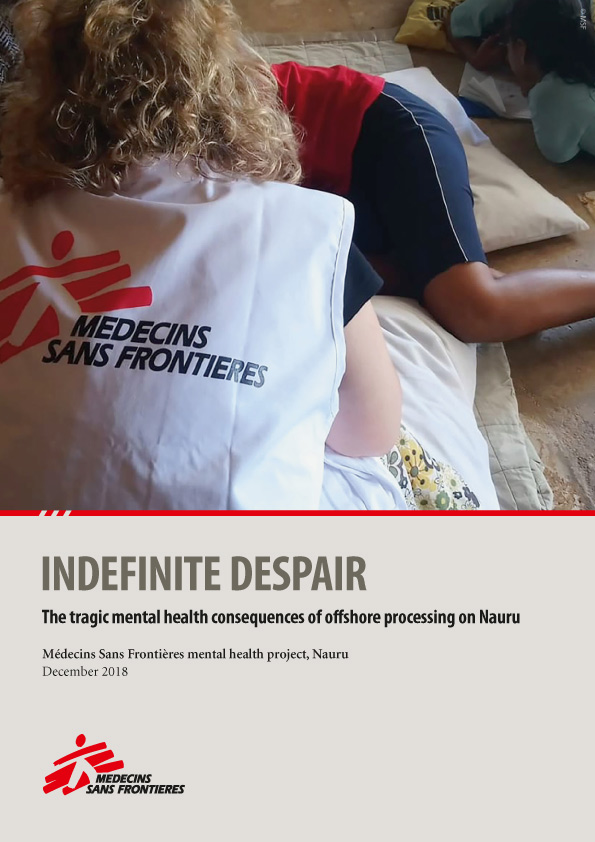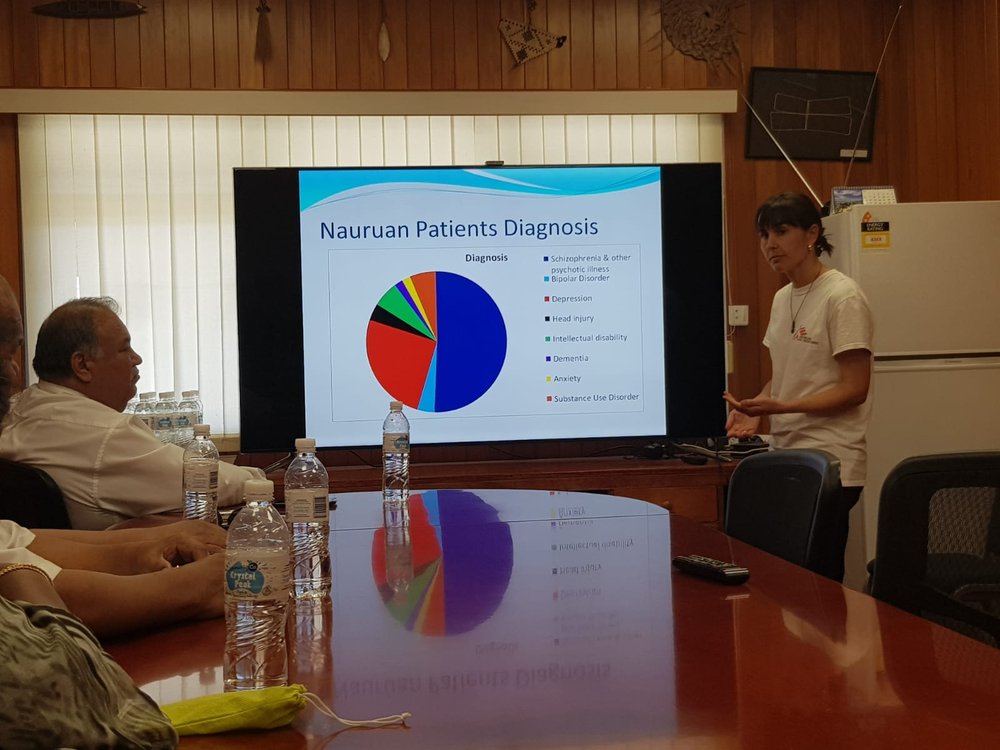Refugee and asylum seeker patients
Among the 208 refugees and asylum seekers MSF treated in Nauru, 124 patients (60%) had suicidal thoughts and 63 patients (30%) attempted suicide. Children as young as 9 were found to have suicidal thoughts, committed acts of self-harm or attempted suicide.
Almost two-thirds (62%) of MSF’s 208 refugee and asylum seeker patients were diagnosed with moderate or severe depression. The second highest morbidity was anxiety disorder (25%), followed by post-traumatic stress disorder (18%).
A total of 12 adult and child patients (6%) were diagnosed with resignation syndrome, a rare psychiatric condition where patients enter a comatose state and require medical care to keep them alive.
From war and violence…
MSF’s asylum seeker and refugee patients on Nauru were an extremely vulnerable group; 75% reported experiencing traumatic events in their country of origin and/or during their migration journey, including combat situations and detention. Refugees and asylum seekers who had been detained on Christmas Island during their journey were more likely to attempt suicide than those who had not been detained there.
Despite their experiences en route, it was the indefinite nature of the Australian government policy that was among the main stressors in their lives.
A total of 65% of refugee and asylum seeker patients felt that they had no control over the events in their lives. These patients were significantly more likely to be suicidal or diagnosed with major psychiatric conditions.
…to violence and abuses in Nauru
A total of 23% of refugee and asylum seeker patients reported experiencing violence on Nauru, and MSF’s data shows that these patients were significantly more likely to require psychiatric hospitalisation, although this was not always possible because there were insufficient beds.
Disturbingly, 23 (11%) refugee and asylum seeker patients reported experiencing psychological and/or physical violence perpetrated by local authorities including the immigration authorities and Australian Border Force.
MSF’s analysis found that more than one-third of asylum seeker and refugee patients were separated from close family members. Families who were split because some members had been medically evacuated – a tactic used by the Australian government to coerce medically evacuated refugees to return to Nauru - were 40% more likely to be suicidal.


